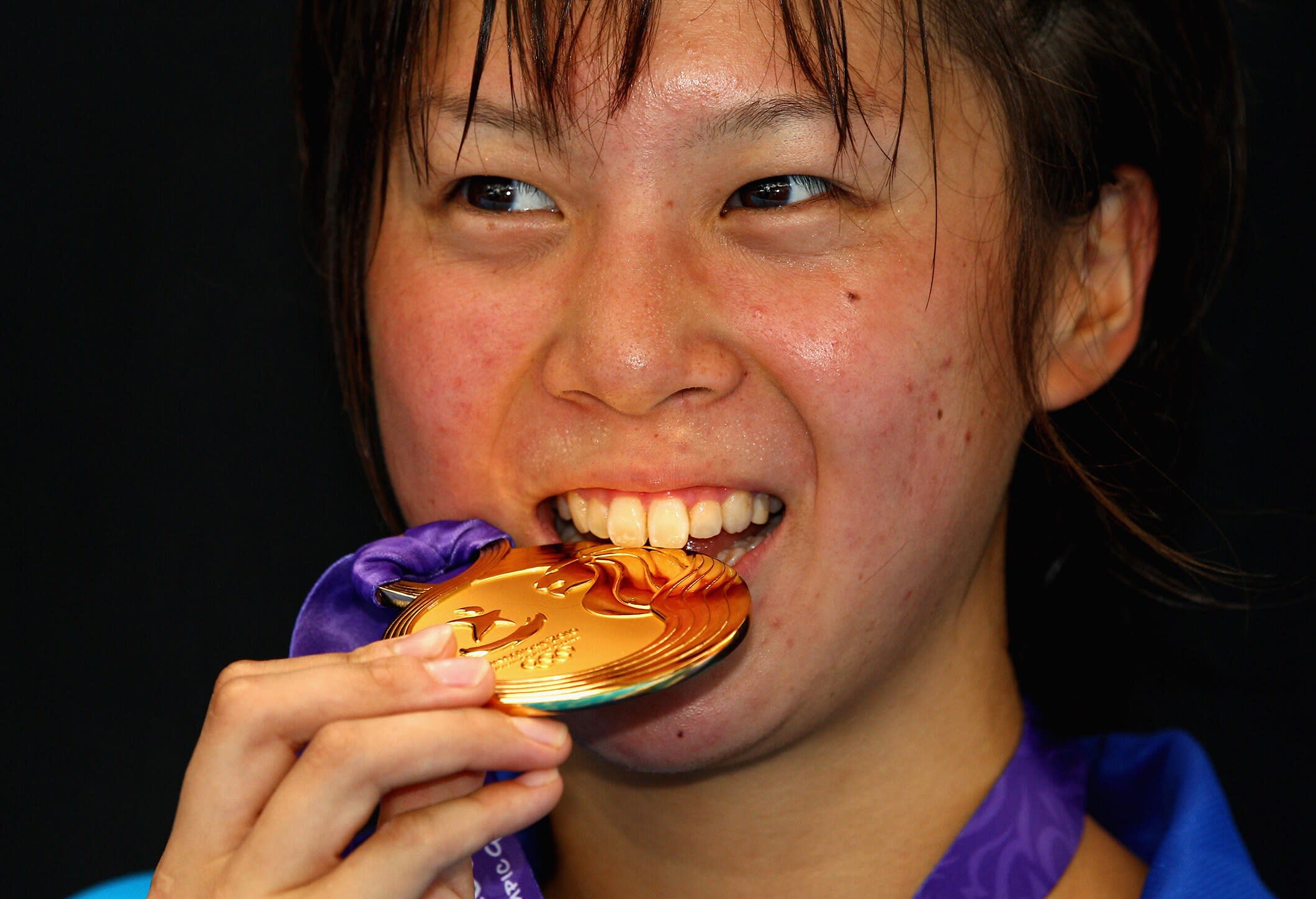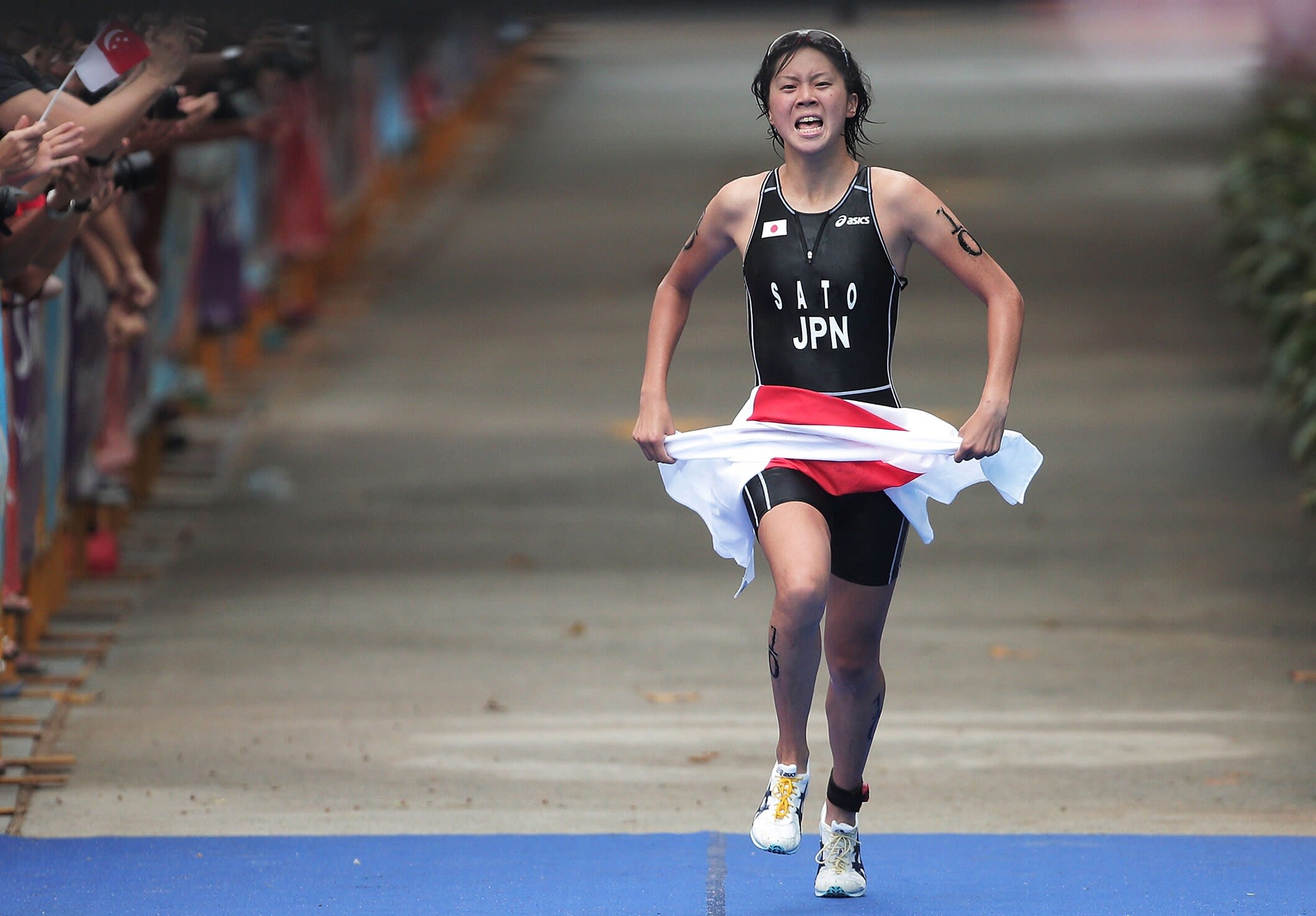Sato hopes to keep history-making run going
Sometimes a mother’s advice really is the best. Yuka Sato would certainly agree. The Japanese triathlete is already a history maker in her field as, as she prepares for Rio 2016 - her first Olympic Games, and owes much to some inspired maternal encouragement when she was younger.
“My mother heard about the sport of triathlon and that’s what got me interested in it, from the age of nine” she says. “Luckily enough, I won the gold medal in my first appearance at the junior national championships. I had good friends in my triathlon club who were a little older than me, and enjoyed training hard in an effort to catch those more senior kids up. My strength naturally improved and I built from there.”
The result of that progress was a gold medal at the 2010 Youth Olympic Games in Singapore – and not just any gold. Sato’s victory meant she was the event’s first-ever gold medallist and marked a hugely significant achievement both for herself and for Olympic sport. She is proud of her medal but explains that the enormity of the situation only sank in later.
“I feel very happy about my name being carved in the history of the Youth Olympic games, but I don’t think I really understood the significance at that moment,” she says. “I raced as aggressively as possible, aiming for the gold. While I was running, I didn’t know who was in front of me or behind me. It was not until the moment I finished, and I was told I was first to cross the finish line, that I realised I had won the gold medal.&rdquo
That was a high point for Sato and she believes the Youth Olympic Games, such a tremendous success in its first two editions in Singapore and Nanjing, is an excellent proving ground for young athletes with big Olympic dreams.
“The Youth Olympic Games is important in offering good opportunities for young athletes, so that they can experience what the Olympics are like and then progress to the senior Games,” she says. “They can feel it first hand, and be motivated to define their goals. My success there definitely helped me set a clear goal to reach the Olympics; the experience of competing on a big stage of world calibre helped draw me a picture of what it takes to be an elite athlete.”
Preparations for Rio 2016 are continuing apace. Sato finished third in April’s Asian Triathlon Championships but has been less satisfied with other recent results; now, it is all about peaking at the right time in August.

“Preparations are going well, and as scheduled,” she says. “I had highland training in which I tried to build up my strength further on each of the three elements of triathlon. I’m also going to participate in a World Cup event in Montreal on August 6, where I hope to gain inspiration and momentum. Hopefully that will put me in the best condition for Rio.
“My recent results were not very satisfactory but I gained something positive each time. So I want to pace myself and perfect my condition over the next few weeks.”
Sato rates swimming as the strongest element of her triathlon skill set, and running as the weakest. Overall, she has a fair idea of who her biggest rival will be in Rio. Flora Duffy, the Bermudan triathlete who has won two World Championships, is the woman she believes she must stay near in order to succeed.
“She is a strong swimmer; her style is to come out of the swim along and with a big lead, keeping the advantage throughout the remainder of the race until the finish,” Sato says. “Therefore, how close I can be to Duffy after finishing the swim will be key for me in Rio.”
At 24 years of age, Sato has plenty of time ahead of her and there will be a very important date in her calendar four years from now. The 2020 Games will be held in Tokyo, the capital city of her home country, and she already has plans for that summer to be a career highlight.

“I’m hoping to reach my peak in 2020 for the Tokyo Olympic Games,” she says. “As it will be held in my home country, everyone there will be attracted to it. It will be important to have wonderful competitions and put on performances that excite and inspire young children who will be future athletes. If we can do that, more and more youngsters will dream about succeeding in sport. The Games will be very important for Japan and the perfect stage for a lot of exciting opportunities.”
The way Sato took her own opportunity and became a world beater should already be encouragement enough that those dreams can, indeed, come true.